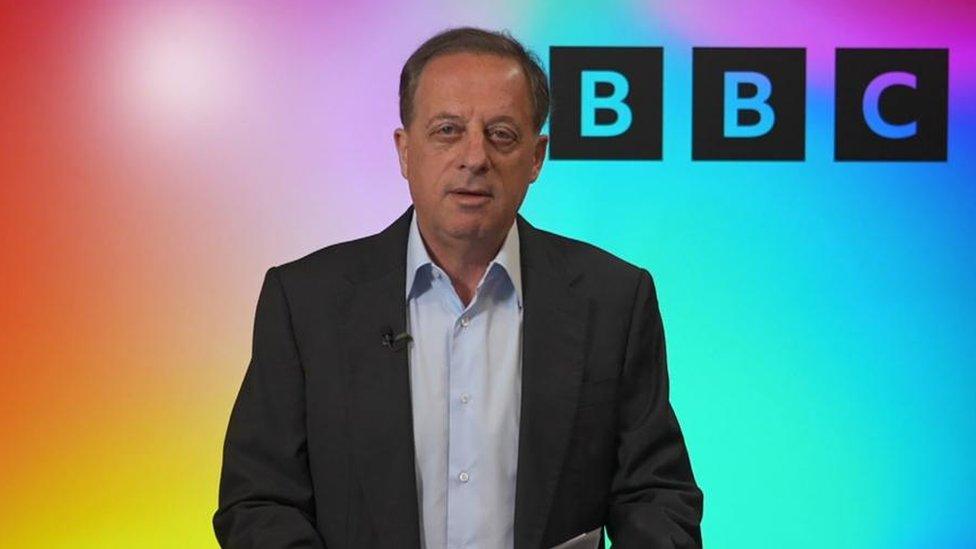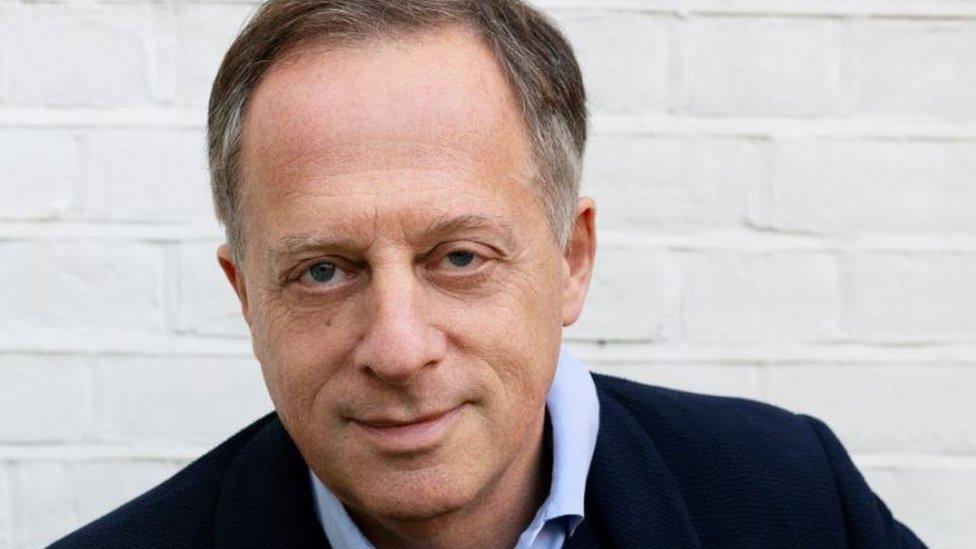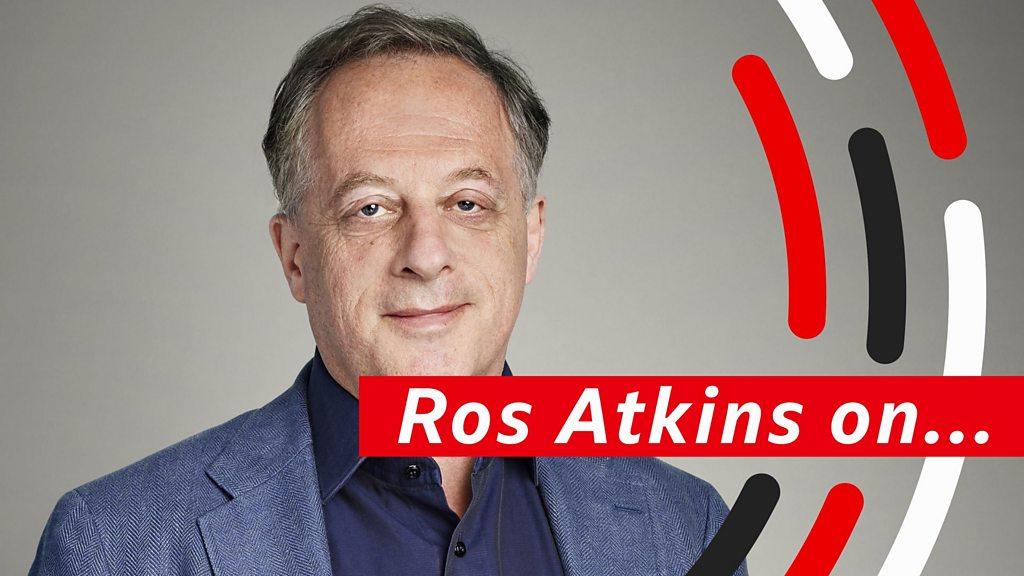Guardian apologises over cartoon of BBC chairman Richard Sharp
- Published

The Guardian has apologised after a cartoon depicting BBC chairman Richard Sharp was criticised as antisemitic.
The image was published the day after Mr Sharp's resignation for breaching conflict of interest rules.
It depicted Mr Sharp, who is Jewish, with exaggerated features and carrying a puppet of Rishi Sunak.
One Jewish group said it "falls squarely into an antisemitic tradition".
Dave Rich, head of policy at the Community Security Trust (CST) charity, added that it was similar to other images which have depicted Jews "with outsized, grotesque features, often in conjunction with money and power".
Mr Rich, who has authored a book on antisemitism, said racist cartoons attacking Jewish people throughout history have depicted them with exaggerated features.
In a statement, a spokesperson for the Guardian said: "We understand the concerns that have been raised.
"This cartoon does not meet our editorial standards, and we have decided to remove it from our website.
"The Guardian apologises to Mr Sharp, to the Jewish community and to anyone offended."
It has since been removed from the newspaper's website.
Stephen Pollard, editor-at-large of the Jewish Chronicle, criticised the Guardian for publishing it, saying he found it "genuinely shocking that not a single person looked at this and said 'no, we can't run this'. To me that's the real issue."
Tracy-Ann Oberman, an actress who has spoken out about anti-Jewish racism in the past, said she did a "double-take" when she saw the image.
Martin Rowson, the artist who drew it, has also apologised, saying he was in a rush to create the artwork by a deadline and did not mean to offend or include any prejudicial undertones.
He described the cartoon as a failure on many levels, adding that he attended school with Mr Sharp and knew he was Jewish, but "his Jewishness never crossed my mind as I drew him".
In a lengthy statement, he wrote: "To work effectively, cartoons almost more than any other part of journalism require eternal vigilance, against unconscious bias as well as things that should be obvious and in this case, unforgivably, I didn't even think about.
"There are sensitivities it is our obligation to respect in order to achieve our satirical purposes."
Mr Sharp and the BBC declined to comment.
Related topics
- Published28 April 2023

- Published28 April 2023
